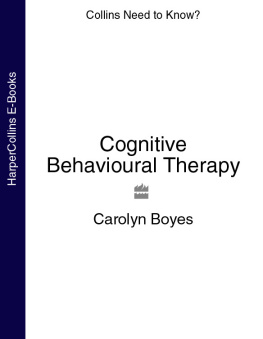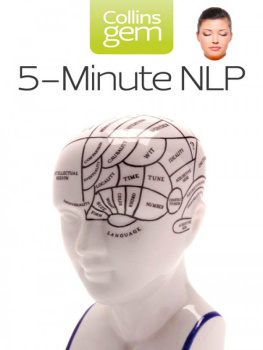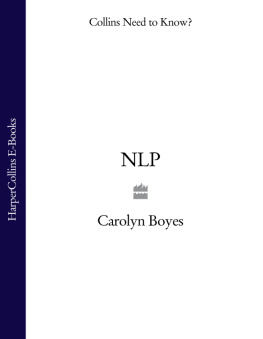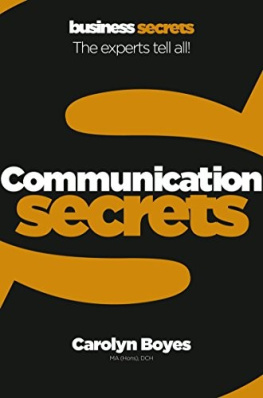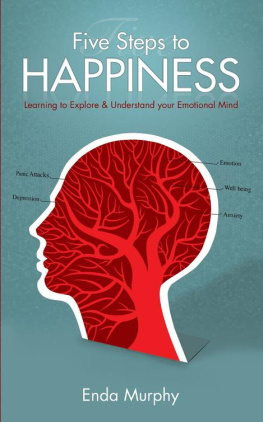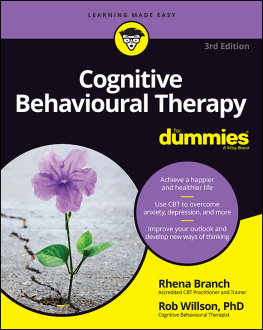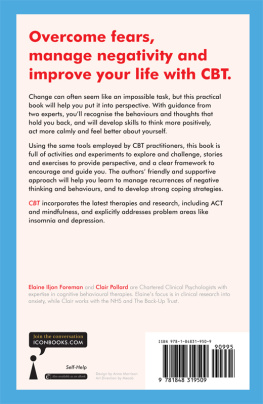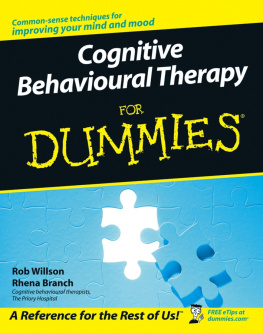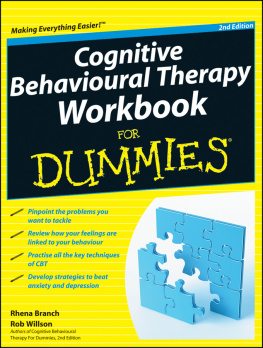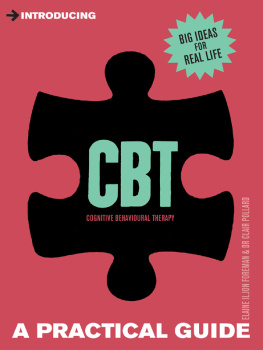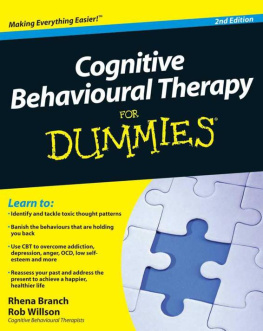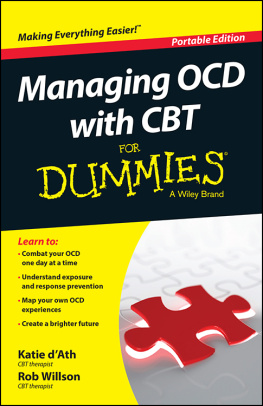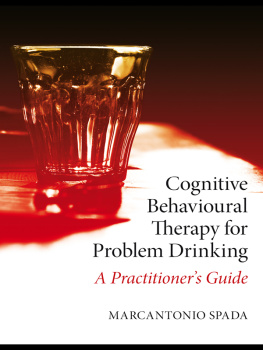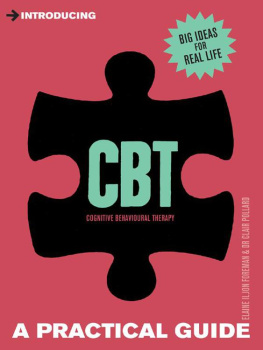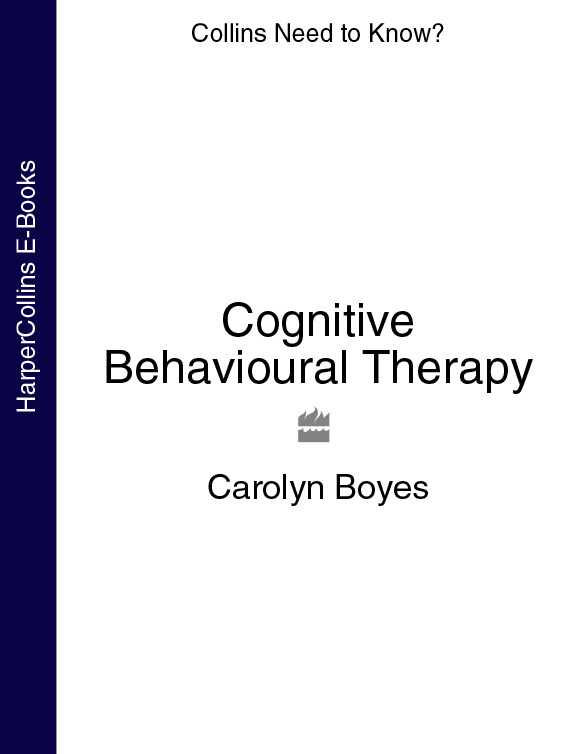Contents
Cognitive Behavioural Therapy (CBT) is becoming more and more popular as a highly respected and scientifically tested treatment for a range of psychological problems. It is a systematic therapy that helps you to feel a greater sense of well-being and to overcome problem emotions.
We all have ups and downs. Some of us experience strong or persistent unpleasant feelings we would like to get rid of. If you are in this position this book will help you to find routes you can take to overcome these emotions and practical methods you can use straight away.
If you dont have any particular problems currently but are just intrigued to find out more about the theory and practice of CBT, you will find that here.
Finally, if you are considering consulting a professional such as a doctor or CBT therapist about a problem, you may find it useful to read the book first or alongside your consultation.
About Need to know? Cognitive Behavioural Therapy
Because this is not a book written for specialists, it does not go into detail about every type of problem for which CBT can be used, but the principles outlined here for specific problem areas in the book can be extended and applied to problems that may not be covered.
The first part of the book covers all the theory:
includes the history of how and why CBT evolved, to the basic underlying theory and how CBT differs from other forms of therapy.
looks at how the way you think can cause unpleasant emotions.
is concerned with the nature of change and the beliefs that help you to create the change you want.
The second part of the book () focuses on taking action. With CBT you do not have to look into your past to find the root of current problems and move forward. Instead, you can concentrate on how your current thinking affects your current feelings.
Need to know? CBT will show you how to overcome any blocks and resistance to change. You will learn to develop goals for the life you want and to identify unwanted thoughts and feelings. Finally, you will acquire new strategies for bringing more pleasant emotions into your life.
The third part of the book highlights issues behind particular emotional disorders and lays out specific tips for dealing with them.
The Appendix includes contacts for organizations and other resources should you want to know more about CBT or if you want to find a therapist to work with.
Using Need to know? CBT
If you are using this book as a self-help tool, you may find it helpful to refer back to the theory of CBT as you go through the worksheets. Taking your time reading through the book will help you to think about where you are now, your current beliefs and feelings and your goals for a new life with healthy thoughts and feelings.
Cognitive Behavioural Therapy (CBT) is used to treat emotional and behavioural problems, from depression to anxiety or addictions. In this chapter you will learn about the basic principles of CBT what it is and why it could be effective as a therapeutic tool for you.
Cognitive behavioural therapy (CBT) is a type of psychotherapy that combines behaviour modification and cognitive therapy. It focuses on cognition (belief), emotion (feeling) and behaviour (action).
must know
The meaning of Cognitive Behavioural Therapy
The cognitive in cognitive behavioural therapy refers to our thoughts and beliefs.
The behavioural refers to behavioural modification. Behavioural therapy focuses on the relationship between our problems, our behaviour and our thoughts.
The therapy describes the structured approach used with a sufferer to overcome a disorder.
Why use CBT?
CBT highlights how your irrational thoughts (beliefs and assumptions) determine your feelings and affect your choices of your actions and behaviour. The focus of the therapy is to eliminate disorders such as depression, anxiety or phobias. It aims to change your thinking and feeling patterns to allow in more helpful thoughts, which in turn will produce more helpful feelings and new behaviours.
CBT is a rational process comprising a set of useful psychological and emotional tools which are available whenever needed. You can then look at your goals, the kind of life you want and where you are now in relation to this ideal.
As a therapy, CBT demystifies a persons actions and reactions to uncover reasons why they might experience negative thoughts, anxiety, depression or fear, then to challenge and eventually change them.
Several studies of psychotherapeutic methods point to CBT as one of the most effective therapies for treating depression and anxiety. In fact, research shows that CBT appears to be more successful than antidepressive medication in treating certain types of depression.
In 2003, NICE the UK Government body advising on how best to treat different illnesses and disorders recommended that CBT be used as either the first-line or an additional treatment for anxiety, depression, eating disorders, obsessive compulsive disorder, post-traumatic stress disorder and schizophrenia.
Whats more, you can learn to use CBT yourself without a therapist present to combat unwanted automatic thoughts, feelings and behaviour.
must know
What can CBT treat?
CBT can be used to treat a wide range of disorders and unwanted feelings. These include:
Stress and tension
Depression
Anxiety
Anger
Sleeping problems
Guilt
Chronic fatigue syndrome
Mood swings
Facial tics
Childhood problems
Relationship break-up
Phobias including agoraphobia and social phobia
Schizophrenia
Panic disorders
Post-traumatic stress
Obsessive compulsive disorder
Bulimia
Chronic non-malignant pain.
The history of CBT
The foundations of CBT go back to the early part of the 20th century. Based on the work of Pavlov and other Russian researchers, it was discovered that emotional responses such as anxiety or fear can be conditioned. In Pavlovs famous experiments dogs were given food when a bell was rung. After a number of repetitions, the dogs started to salivate in response to the bell they had been conditioned to respond to an external stimulus.
This is known as classical conditioning and the Russian researchers used it as the basis for further research. They found out that if animals were given an electric shock at the same time as being shown a red light, they would eventually respond to the red light alone with fear and an increase in heart rate. The red light would have become a conditioned fear stimulus.
Conditioning and behaviour
Later another principle of conditioning known as the law of effect was developed. Three researchers in the USA Thorndike, Tolman and Guthrie discovered that if a particular behaviour was consistently rewarded it was likely to reoccur.
must know
Self-talk
Automatic thoughts or self-talk are thoughts laden with negative emotions and are often unconscious.
This principle was then extended to show that any behaviour could be reinforced: positive reinforcement happens when a behaviour occurs frequently, or more strongly, because it is reinforced by positive consequences; for example, praise or another reward. Negative reinforcement happens when behaviour happens frequently because it is followed by

